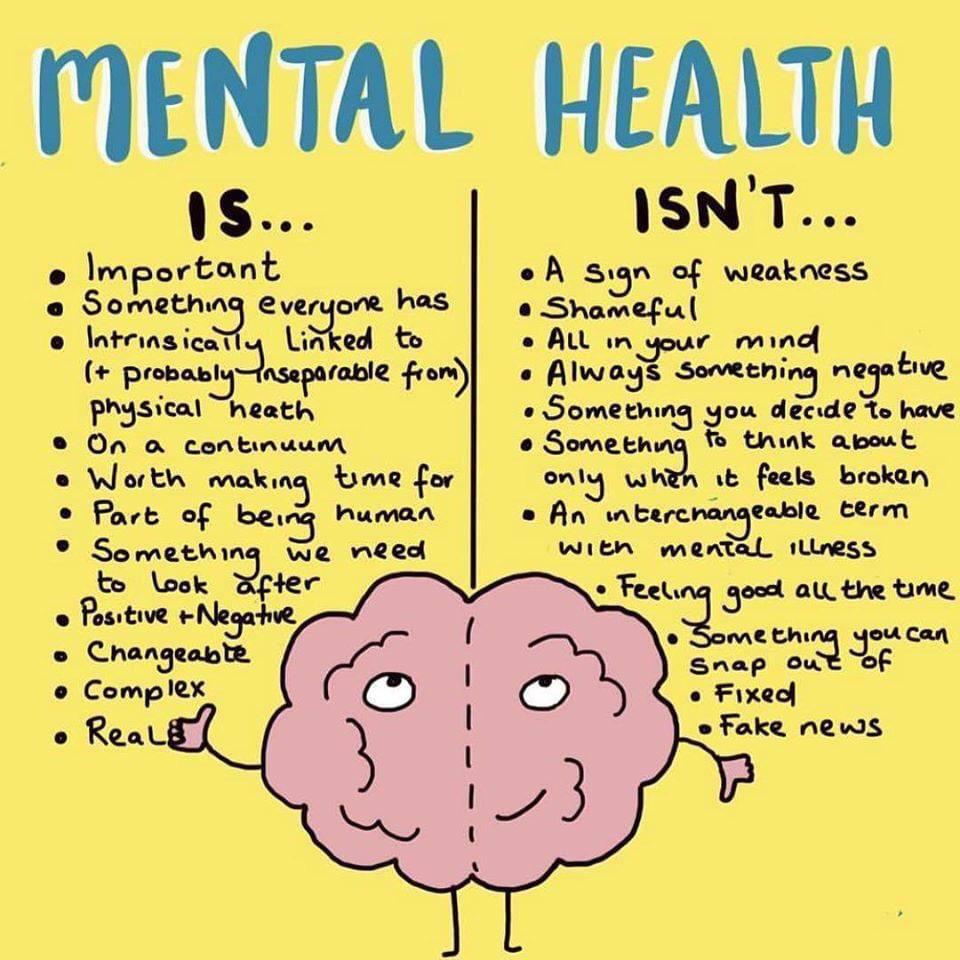Mental Health Essentials: What Actually Matters for Psychological Wellbeing
Understand the core elements of positive mental health
Mental health encompass our emotional, psychological, and social well-being. It affects how we think, feel, and act, while likewise determine how we handle stress, relate to others, and make choices. When discuss positive mental health, certain elements are systematically highlight as essential, while others may be overemphasized despite have less impact on overall psychological wellness.
To genuinely understand what matter for mental health, it’s important to distinguish between the fundamental building blocks and the supplementary practices that, while beneficial for some, aren’t universally critical.
The true pillars of mental wellness
Quality social connections
Humans are inherently social creatures. Meaningful relationships provide emotional support, reduce feelings of isolation, and create a sense of belong. Research systematically show that people with strong social ties experience lower rates of depression and anxiety.
These connections don’t need to be numerous – yet a few deep, authentic relationships can importantly impact mental intimately being. The quality of these interactions matter more than quantity.

Source: betterhealthatworkaward.org.uk
Physical health maintenance
The mind body connection is powerful and bidirectional. Regular physical activity releases endorphins, reduce stress hormones, and improve sleep quality. A balanced diet provide the nutrients necessary for optimal brain function.
Sleep quality in particular stand out as a critical component of mental health. Chronic sleep deprivation is link to increase risk of depression, anxiety, and impair cognitive function.
Stress management techniques
Learn to efficaciously manage stress is fundamental to maintain positive mental health. This doesn’t mean eliminate stress alone (which is impossible ) but kinda develop healthy cope mechanisms.
These might include mindfulness practices, deep breathing exercises, or merely recognize when to step spine from overwhelming situations. The ability to regulate emotional responses to stressors create resilience.
Sense of purpose and mean
Humans course seek meaning. Have a sense of purpose – whether through work, relationships, creative pursuits, or spiritual practices – provide direction and motivation. It creates a framework for make decisions and weather difficult times.
Purpose doesn’t need to be grandiose; find meaning in everyday activities can be as valuable for mental wellness.
Unremarkably overemphasize elements
Constant positivity
May hap the virtually misunderstood aspect of mental health is the notion that positive thinking mustbe maintainedn at all times. While optimism have benefits, the pressure to remain constantly positive can be harmful.
Toxic positivity – the excessive and ineffective overgeneralization of a happy, optimistic state – dismiss authentic human emotional experiences. It can lead to feelings of guilt and shame when experience natural negative emotions.
Healthy mental states include experience the full range of human emotions, include sadness, anger, and disappointment. Learn to process these feelings, sooner than suppress them, is really more beneficial for long term psychological health.
Material success and external validation
Society oftentimes equate success, wealth, and external achievements with happiness and mental wellness. While financial security does remove certain stressors, studies systematically show that beyond meet basic needs, additional wealth has diminished returns on happiness.
Likewise, seek constant validation through social media likes, career advancement, or other external metrics can create a fragile sense of self-worth that crumble when that validation is withdrawn.
Internal validation – the ability to recognize your own worth independent of others’ opinions – prove to be far more sustainable for mental health.
Perfect work-life balance
The concept of achieve perfect equilibrium between professional and personal life create unrealistic expectations. Life course flow through periods where one area may require more attention than others.
Instead, than strive for perfect balance at all times, mental health experts suggest aim for work life integration that acknowledge the fluid nature of priorities and responsibilities. This more flexible approachreducese the stress of try to maintain an idealized schedule.
Unwarier independence
Western cultures peculiarly emphasize self-reliance and independence. Nonetheless, the belief that seek help indicate weakness can prevent people from access necessary support.
Interdependence – recognize when to rely on others and when to stand solitary – is really a sign of emotional maturity and contribute more positively to mental health than rigid self-sufficiency.
What’s not essential: perfectionism
Among all the factors ordinarily associate with mental health, perfectionism stand out as not merely non-essential but potentially harmful. Perfectionism – the tendency to hold oneself to unrealistically high standards and be overly critical of perceive failures – has been link to numerous mental health issues.
Research from the American psychological association has found strong correlations between perfectionism and:

Source: safety4sea.com
- Increase anxiety and depression
- Higher rates of burnout
- Eat disorders
- Reduced ability to cope with failure
- Decreased life satisfaction
Perfectionism create a mindset where anything short of flawless performance is seen as failure. This binary thinking pattern lead to chronic stress andself-criticismm that undermine the foundations of positive mental health.
Psychologists distinguish between healthy high standards (which can motivate growth )and maladaptive perfectionism. The key difference lie in the ability to accept imperfection without harsh self judgment.
The perfectionism paradox
Ironically, while perfectionists frequently believe their high standards drive success, research suggest the opposite. The fear of failure that accompany perfectionism often lead to procrastination, reduced creativity, and avoidance of challenges – all of which limit potential growth and achievement.
Additionally, perfectionism create a move target. When perfectionists achieve a goal, they typically raise the bar quite than experience satisfaction, create a ne’er end cycle of strive without fulfillment.
Build sustainable mental health practices
Self compassion over self-criticism
Replace perfectionism with self compassion – treat yourself with the same kindness you’d offer a good friend – create a healthier foundation for mental wellness. This approach acknowledge mistakes as part of the human experience instead than personal failings.
Research by Dr. Kristin Jeff, a pioneer in self compassion studies, show that self compassionate individuals experience greater emotional resilience, less anxiety, and more authentic happiness than those drive by self-criticism.
Embrace growth mindset
Adopt a growth mindset – the belief that abilities can be developed through dedication and hard work – offer a healthier alternative to perfectionism. This perspective view challenges as opportunities to learn quite than tests to pass or fail.
People with growth mindsets tend to persist foresight when face obstacles, learn more efficaciously from feedback, and experience less anxiety about performance.
Practice psychological flexibility
Psychological flexibility – the ability to adapt to change situations, balance compete life demands, and shift perspective when need – systematically emerge as a key indicator of mental wellness.
This skill allow individuals to navigate life’s inevitable ups and downs without become rigid in their thinking or behavior. It includes accept difficult thoughts and feelings quite than struggle against them.
Find balance in mental health priorities
While perfectionism isn’t essential for positive mental health, this doesn’t mean abandon goals or accept mediocrity. The key lie in find a middle path that promote growth while maintain psychological well-being.
Set realistic standards
Healthy goal set involves create challenging but achievable objectives. This mean considers your current resources, skills, and circumstances when determine what success look like.
It to involve recognize that progress isn’t linear. Setbacks and plateaus are normal parts of any growth process, not indications of failure or inadequacy.
Cultivate mindfulness
Mindfulness – the practice of pay attention to the present moment without judgment – help counter the future focus anxiety that oftentimes accompany perfectionism. Regular mindfulness practice has been show to reduce rumination, increase self awareness, and improve emotional regulation.
Evening brief daily mindfulness exercises can help shift attention from worries about performance to appreciation of current experiences.
Seek professional support
Mental health professionals can provide valuable guidance in distinguish between healthy ambition and harmful perfectionism. Cognitive behavioral therapy in particular has proved effective in address perfectionist thinking patterns.
Therapy offer a safe space to explore the origins of perfectionist tendencies and develop more balanced approaches to self evaluation and goal pursuit.
Conclusion: redefine mental health success
Positive mental health doesn’t require perfection, constant happiness, or extraordinary achievement. Alternatively, it thrives on connection, resilience, self compassion, and the ability to find meaning eve in difficult circumstances.
By recognize that perfectionism is not merely non-essential but potentially detrimental to psychological well-being, we can redirect that energy toward practices that authentically support mental health. This shift allows for a more sustainable and fulfilling approach to emotional wellness.
The virtually robust mental health come not from flawlessness but from authenticity – embrace the full human experience with its inherent messiness, challenges, and imperfections. In this acceptance lie the true foundation for last psychological well-being.
MORE FROM getscholarships.de













